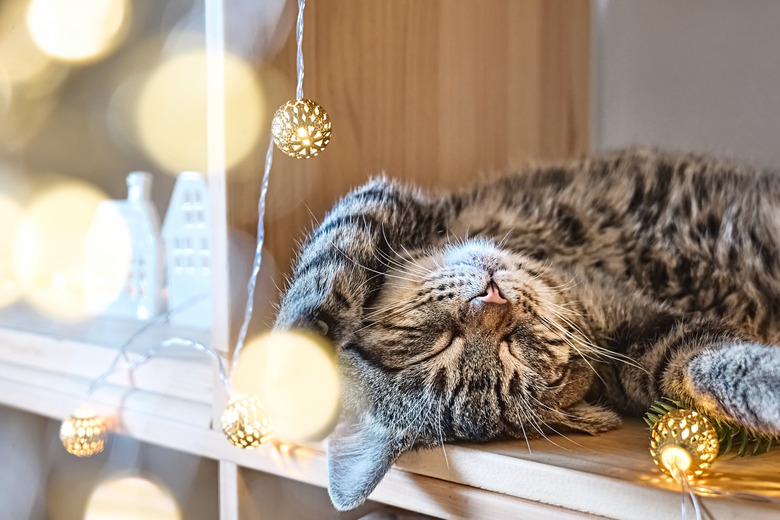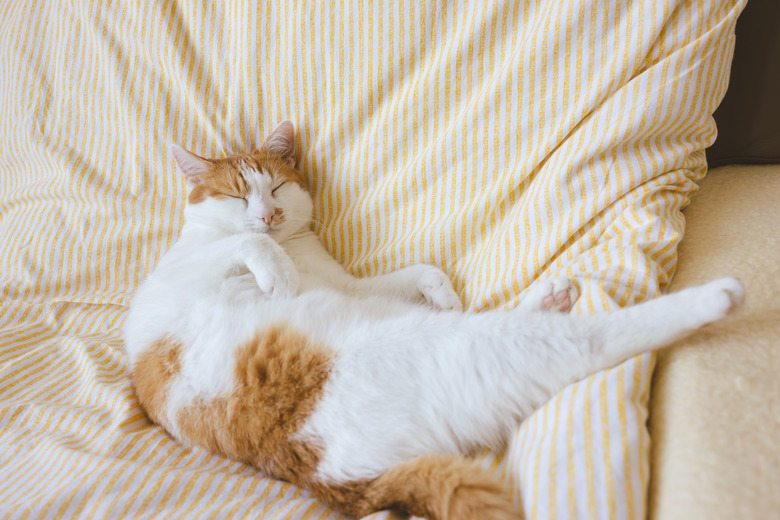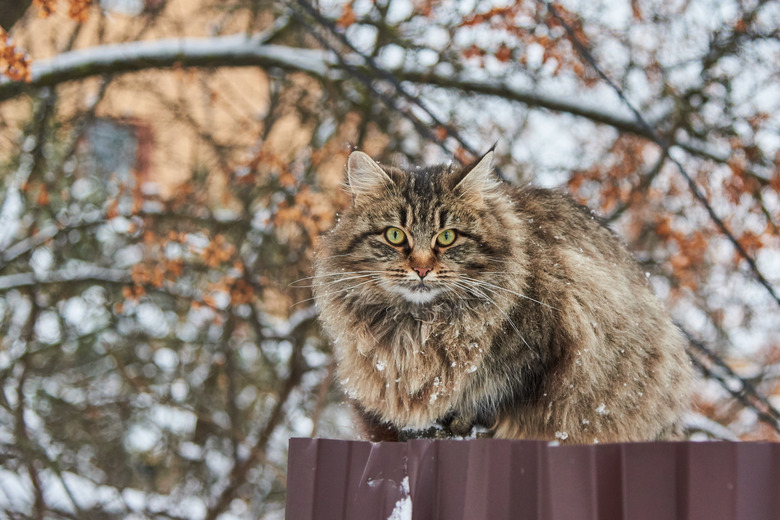Do Cats Hibernate In Winter?
The winter months usher in shorter days, longer nights, and colder temperatures. It's not just people who experience a shift in seasons — our cats do, too.
When our cats sleep more or exhibit other behavior changes during the colder months, many pet parents wonder if their kitties are "feline blue" due to the weather.
Many more even wonder if their cats hibernate during the winter.
How much sleep is normal for cats
How much sleep is normal for cats
Generally, cats sleep between 12 and 16 hours each day, which is similar to how much dogs sleep (12 – 14 hours). Whereas humans average about seven hours a day.
Yet, the amount your indoor cat sleeps will be determined by factors including age, weight, size, and even breed.
Cat hibernation vs torpor
Cat hibernation vs torpor
Torpor is a physiological state that helps animals and plants reduce their metabolic rate. It's a form of dormancy that is triggered as a response to environmental stimuli, such as radical changes in temperature or reduced access to food or water.
As an example: Feral cats, wild dogs, and other mammals may go into a state of torpor following the burning of habitat during wildfires, according to animal researchers working on behalf of the University of New England Animal Ethics Committee.
Essentially, during times of stress, torpor lowers the energy expenditure of feral cats, which, in turn, reduces activity and diminishes foraging requirements to meet daily nutritional needs.
In other words, torpor increases a feral cat's chance of survival by slowing down their metabolic rate when they may not have access to enough calories due to cold weather or other environmental calamities that limit access to food.
Currently, there's no research as to whether or not domestic cats go into torpor, like their feral cousins.
Still, if your kitty is sleeping more than usual during cold weather, torpor could be an explanation — although, an unlikely one.
Will cats hibernate?
Will cats hibernate?
If torpor sounds a lot like hibernation — that's because the two phenomena are related. Biologists regard hibernation as a long-term form of torpor and often refer to it as, multi-day torpor.
However, hibernation is a survival strategy of heterothermic animals, including bears, squirrels, and some birds and reptiles.
Hibernation is when "animals sink into a deep torpor where metabolic rate is 5 percent of normal, body temperature drops to 0 – 5 degrees Celsius, and physiological functions are strongly suppressed," states biologist Kenneth B. Storey in his paper "Mammalian Hibernation".
There's no evidence that either feral or domestic cats experience hibernation.
How winter affects cats
How winter affects cats
While there's debate as to whether cats truly get seasonal depression, many pet parents share anecdotal stories about how their cat's behavior changes during the wintertime or when temperatures drop.
- More eating: You may notice that your kitty is eating more during cold weather. That's because when your cat is cold, they work harder to maintain their body temperature, which will require more calories. There are also theories that domesticated cats still have instincts that drive them to build up fat stores to help them survive winters.
- More sleeping: It may be hard to tell, but your cat is probably sleeping more during the colder months. While it's most likely that your kitty is not in a state of torpor, the amount of daylight during winter will signal their body clock to spend a few more hours napping as they adjust to the changing seasons.
- More shedding: Some cat daddies and kitty moms report that their tabbies shed more than usual during the fall and early winter. Depending on your cat's breed (or a mix of breeds) and their type of coat, many felines undergo a moulting process where their lighter summer fur is replaced by a thicker winter coat.
How to help your cat through winter
How to help your cat through winter
Keeping your cat happy and healthy during the wintertime isn't as challenging as you may expect.
- Warm place: Keep in mind that most cats will get cold, even pampered indoor cats. So make sure that you provide them with lots of warm places throughout the home such as on the sofa, near a heating vent, or something similar.
- Warm cat bed: Not all kitties embrace the concept of a store-bought cat bed — they often prefer to adopt less conventional spaces. Yet, most cats do enjoy blankets, pillows, and other soft-textured surfaces. So leave a few extra blankets around the house during winter. Think of them as cat warming stations. Additionally, you can turn old boxes into an adorable cat house.
- Lots of light: During the darker days of winter, daylight can seem like an elusive resource. Do your best to keep daylight available for your cat by opening curtains and blinds and even keeping a few extra lamps on near their favorite napping spots, litter box, and food dish.
In summary
In summary
While your cat may not hibernate in winter, it's possible that they may torpor.
Regardless, most cats will undergo changes in their sleeping and eating patterns when it gets cold. This is normal behavior — even human behavior shifts and adapts to lower temperatures.
The bottom line: Your cat probably gets cold in the winter. So help them out with a little extra food, a lot of extra warmth, and, of course, so much more attention and love.


